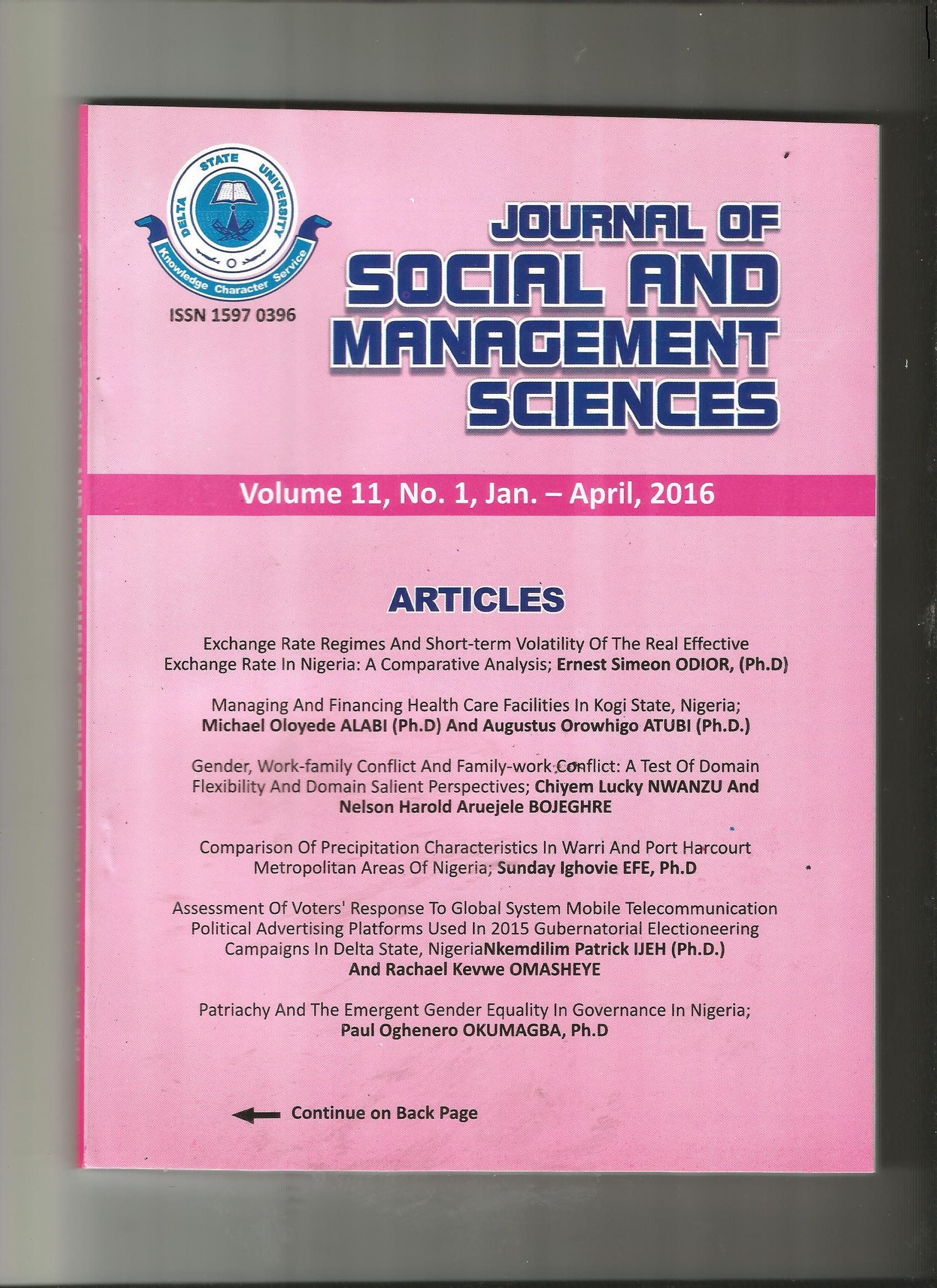
JOURNAL OF SOCIAL AND MANAGEMENT SCIENCES
Journal of the Faculty of Social Sciences, Delta State University, Abraka, Nigeria
ISSN: 1597-0396
DOI: 10.5987/UJ-JSMS
Email: jsms@universityjournals.org
WOMEN IN TRADITIONAL BANKING IN AFRICA: THE NIGERIAN EXPERIENCE
DOI: 10.5987/UJ-JSMS.16.031.1 | Article Number: 1D875612 | Vol.11 (1) - April 2016
Author: OGWEZI Joyce Ogho
Keywords: Nigeria, Women, Traditional Banking
This paper examines the traditional form of financial intermediaries in Africa, while focusing on the informal means by which the Nigerian women cope with lingering economic challenges. While exploring the various characteristics of this scheme known differently as 'Ajo' (Yoruba), 'Adashe' (Northern Nigeria) and 'Esusu' (Igbo), the paper argues that more low-income earning people (including market women, artisans, and small business owners) have continued to shun the services offered by formal financial institutions for the more informal sector. Some of the reasons advanced for this increasingly popular 'esusu' practice include access to fundsto kick-start small businesses and to borrowings at emergencies, as a way of increasing savings as well as achieving a communual goal. A total of 285 respondents drawn from 8 markets in two urban centres- Ibadan in Oyo State and Warri in Delta State- constituted our sample for the study. In recognition of the vital role of communication in human interactions, this paper seeks to establish what communication channels exist between women 'esusu' contributors and their collectors. Our data indicate that interpersonal networks (including friendship/family/socio-economic groups) are the most predominant channels of communication, influence and persuasion. On the basis of this, the paper concludes that because of the peculiarities of this largely-unbanked group, attempts must be made to engage them using communication channels that they consider more credible and accessible.
